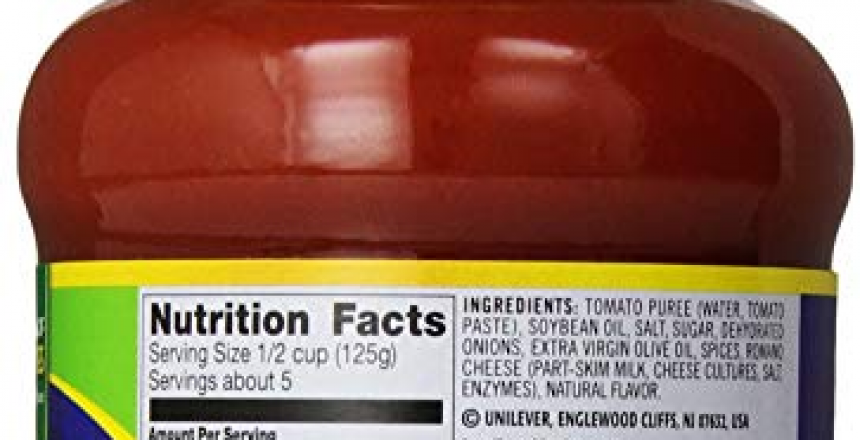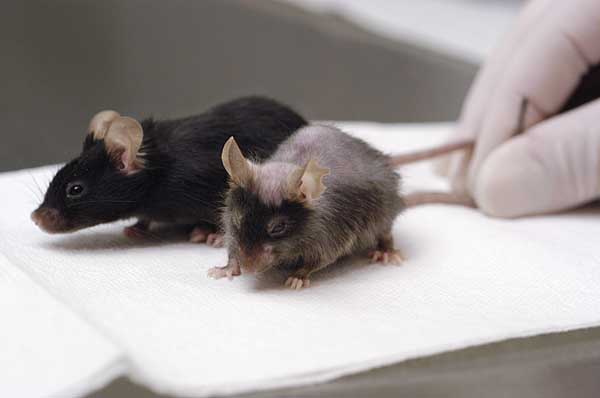I’ve written a lot about getting in shape, staying lean, and anti-aging interventions, but it’s become clear to me that avoiding ultra-processed food should be the basis of any health regimen. Ultra-processed food is associated with cancer, and in this article we’ll see how ultra-processed food leads to obesity and chronic disease.
What is ultra-processed food?
I used to use the term “processed food”, but the term I favor now is “ultra-processed”.
The reason is that almost all food is processed in some form or other. For example, ham and similar meats; cheese and similar dairy products like butter and yogurt; olives and olive oil. All these foods are processed, but in a manner tested by time.
Ultra-processed food refers to food that has seen the inside of a modern factory and is mass-produced. Examples include:
- packaged bread and rolls
- sweet packaged snacks and candy
- sodas and other sweetened drinks
- instant noodles and soup
- frozen meals
- fast food.
In addition, they are made using industrial processes and contain multiple chemical additives.
Most of them contain the unholy trinity of seed oils, sugar, and refined grains.
Seed (vegetable) oils are an underrated factor in promoting obesity and chronic disease. (In my humble opinion, of course.)
Let’s look at some evidence.
Seed oils promote obesity and inflammation
A Western-like fat diet is sufficient to induce a gradual enhancement in fat mass over generations. This study used mice and bred them over 4 generations. Each generation became fatter than the previous one.
What was the key element of this “Western-like fat diet”? A high ratio of omega-6 to omega-3 fatty acids. The omega-6 is due to a high amount of linoleic acid, of which seed oils contain a large amount.
The results show that high-fat diets, when that fat is composed largely of linoleic acid, made mice fat and that epigenetic changes likely drove the increase in fat mass over generations.
We and others have pointed out the detrimental effects in humans caused by a dramatic change in the fatty acid composition of dietary fats at a time when the quantitative changes in fat consumption were not observed. Notably, at a time where overweightness and obesity have steadily increased over generations in most industrialized countries, consumption of LA and ARA has increased. In France, an increase of 250% and 230%, respectively, occurred from 1960 to 2000.
The consumption of large amounts of linoleic acid, mainly from seed oils, is something new in the world. Humans didn’t evolve eating that much, which is around 10-fold higher than dietary requirements.
Linoleic acid
Dietary Linoleic Acid Elevates Endogenous 2‐AG and Anandamide and Induces Obesity Also a mouse experiment. Decreasing the linoleic acid content to 1% of the diet reversed the obesogenic property of the high-fat diet.
Adding omega-3 fatty acids of the type in fish and fish oil also reversed the obesogenic properties of the diet.
Excess linoleic acid induces inflammation, a key factor in chronic disease such as diabetes, heart disease, and cancer.
The modern Western diet has been consumed in developed English speaking countries for the last 50 years, and is now gradually being adopted in Eastern and developing countries. These nutrition transitions are typified by an increased intake of high linoleic acid (LA) plant oils, due to their abundance and low price, resulting in an increase in the PUFA n-6:n-3 ratio. This increase in LA above what is estimated to be required is hypothesised to be implicated in the increased rates of obesity and other associated non-communicable diseases which occur following a transition to a modern Westernised diet.
Soybean oil is more obesogenic and diabetogenic than fructose (from sugar) in mice.
The consequences
Soybean oil and other seed oils are in almost all ultra-processed foods.
Here’s some salad dressing to put on your healthy salad. First ingredient is soybean oil and canola oil.
Turns your healthy salad into poison.

Spaghetti sauce: second ingredient is soybean oil.
Now you know one reason everyone got fat. Seed oils in ultra-processed food.
Why do so many people seem to be so depressed?
We saw above that linoleic acid leads to fat accumulation and insulin resistance.
People in the highest tertile of visceral fat had 6 times the risk of colorectal cancer as those in the lowest. Insulin resistance was associated with up to 4 times the risk.
High waist circumference is associated with 2 to 3 times the risk of colorectal cancer.
Conclusion
One of the worst ingredients found in ultra-processed food is seed oil. Soybean oil is the most common.
Seed oils cause obesity and increase the risk of chronic disease, like cancer.
The average American eats more than half of calories as ultra-processed food.
To stay lean and healthy, you must avoid the ultra-processed junk that passes for food among average people.
Eat whole, minimally processed foods. Meat, fish, eggs, fermented dairy, non-starchy vegetables.














19 Comments
I agree with you that the ultra-processed industrial seed oils are probably the worst thing anyone can consume. Some years from now, I think it will be shown definitively that the consumption of this gunk has been more responsible for more heart disease (and probably many cancers as well) than anything else in the Western diet, including sugar. I won’t go out to eat anymore at restaurants that serve fried food, because the chances are very good that they are using industrial seed oils in their frying. All you have to do to realize how bad these oils are is to read up on how they are made…….it will make you sick. Much healthier to eat at home, where I can control the ingredients in my food.
“The dose makes the poison.” There is no need to be a purist – perfection is the enemy of good enough – in diet. I’ll have restaurant/deli fried stuff a couple of times a month.
I enjoy some fried chicken, Asian food, or even, gasp, French fries from time to time. That gives me more food options and less angst about being perfect.
The flip side is that I eat a lot of mackerel, some salmon, and pickled herring every week.
And I most certainly do read labels! It’s hard, but you can find products w/o all those seed oils or sugars. Or, at the least, they are way down the ingredient list which means minimal. See first sentence above. That’s Toxicology 101.
Great post as always, thank you. 2 quick questions. Does chicken noodle soup (canned / Progresso brand) tend to have vegetable oils or anything else that could be bad? Also, all the bread in my local grocery is packaged, do you recommend having a deli slice fresh bread instead? Thanks so much!
Thanks, Steve. You’d have to look on the label for that, and my guess is that it would contain seed oils. As for the bread, you’d have to decide for yourself whether the ingredients are acceptable. Lots of commercial bread has seed oils and sugar.
This reminds me of how hard it is to find a good store bought tortilla. They’re all made with cotton seed or whatever. The real deal is made with lard.
Back in the day, I was pretty adept with a breadmaker…it’s a lot easier and fun way to control what you put in your foodhole if you want bread or pizza. even pasta if you’re adventurous.
Heck, go buy one of those tortilla flateners and make your own tortillas from scratch.
But… but… lard is bad for you! Clogs the arteries!
/sarc
Which unscientific idiot said that ? Encel Keyes ?
A nutrition site says that Progresso’s chicken noodle soup doesn’t have soybean oil, but it does have “soy protein isolate.” Manufacturers often add soy protein to soup because it lets them save money by using less meat. That isn’t universal, but it’s something to watch out for…
Well written, PD. I concur with calling synthetic food diets ultra processed. This corruption of healthy natural food , best dubbed The US Diet, has now been globally adopted or exported mainly as fast food items. A prime example is Crisco, fully hydrogenated fat, which was first received in a CARE package in Germany in the 1950s. The best and least costly fix is home cooking, ideally starting with organic or unpolluted food stuffs.
Herman, Crisco goes back to the first decade of the last century. It was a way of utilizing all that cottonseed oil left over from ginning cotton.
And apparently, check the product, they claim no more transfats. Not saying that makes it healthy, just that it is healthiER than the old stuff. But, of course, why use it anyway?
Can attest to inflammation 100%, used to have joint pains all the time, one point it got so bad while travelling had to stay inside the whole time (feet and legs constantly inflamed). And was a pretty healthy person in general with some idea of LCHF and worked out (or tried to), but no idea of the seed oil as of yet. Came across ‘Toxic Oil’ in my local library a few years back and it changed my life. Honestly this is the new ‘smoking is healthy’, if not worse, since this creeps into everyday food that shouldn’t have it. Keep up the good work, stop this poison!
I don’t remember where I saw it first, but I really like the term “engineered foods”. At least to me that seems to clearly communicate the points you make so well.
Mr Magan,
In order for successive generations of mice to be fatter than previous generations would it not require the fats/oils to actually affect the mice at the genetic level (mutations) in order to pass on the cumulative outcome to the next generation? (just a thought). If this were true then could it not be argued that a change in diet for these later generations of mice would have no effect in reversing their obesity?, as it would be genetically encoded from birth.
I don’t understand how each generation could be fatter than the last unless the diet was deliberately fat/oil increased to cause this.
Regards.
Hi Dave. The answer has to do with epigenetics, or which genes are expressed. Every cell in our body has a full complement of genes, but the genes expressed in a heart cell differ from those expressed in a bone cell. In the case of the mice, being raised from conception in a high linoleic acid environment apparently changed gene expression such that they made more fat cells.
Mr. Mangan,
According to Mauro Di Pasquale’s book, “The Anabolic Diet”, chicken is much higher in polyunsaturated fat than pork and pork is higher than beef. Since grain fed animals have higher Omega-6 relative to Omega-3, it would seem that chicken is much higher in Omega-6 than beef or pork. Maybe we should be eating less chicken and more pork and beef.
Dark meat chicken is particularly high in Omega-6 since it has so much more fat.
Thanks, Bruce. I noted that fact in my article on grass-fed beef. This is why eating almost any amount of chicken negates any benefit of grass-fed beef. I’ve cut way down on my chicken intake, and usually only eat it when out somewhere now.
I too want to say ‘well written, PD.” Yes ultra processed ‘food’ create synthetic food diets. The only way for me is avoidance.
(off topic)
Just found this fresh study. Perhaps you find it interesting.
Periodic fasting starves cisplatin‐resistant cancers to death
https://emboj.embopress.org/content/early/2018/06/06/embj.201899815
What you write, if taken to heart by your readers, is life changing.
The changes are simplistic yet so difficult to implement in this day and age.
Many of your lifestyle recommendations, I was partially following due to my own interest in nutrition and health. However, your use of scientific articles has solidified my dedication to a very low carb protein diet and skipping any processed foods, even as treats.
My favorite line is once you hit your 40s, its all down hill.
I smiled, nodded and agreed- being in my early 40s myself- then went to run and go lift weights with my much younger significant other.